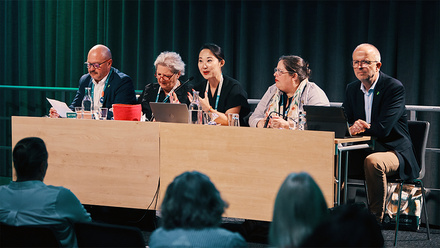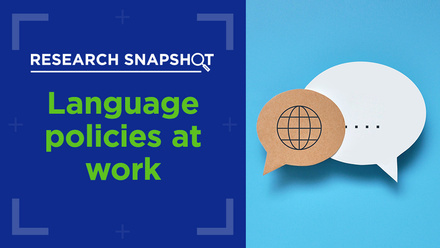Closing the gap between theory and practice

Continuing with Winter Forum Week, we take a look at how graduate students are helping shape the internationalisation research agenda. One Master's student's investigation of faculty promotion practices across the globe not only yielded new insights into the internationalisation of tenure and promotion, but also highlighted the benefits of keeping internationalisation research and practice in close dialogue with one another.
The gap between theory and practice – and how to close it – is a hot topic in many disciplines. As a student on a Master’s programme in international higher education at Boston College in the United States, I engage with past and present research into internationalisation and I am pushed to consider its future. But doing this in an academic setting is not quite the same as being a practitioner. Knowing this full well, Boston built a field experience course into the programme – and based on my experience of this course, I would like to share some observations, as someone who is soon to take up the mantle of practitioner, about the state of research in the field and its practical application.
Stepping into the field
In the field experience course, each student is expected to partner with an organisation and undertake research on its behalf. The aim is to provide realistic exposure to the work of a practitioner and to the application of scholarly research for an organisation that has its own priorities and values. The clearest expression of this is that the project is guided by a research question and a deliverable determined not by the student but by the organisation.
In my case, I partnered with University College Dublin’s Office of Global Engagement, known as UCD Global. My project was to evaluate the university’s faculty career policies, primarily those related to promotion and tenure, in light of best practice, and then make recommendations as to how the framework could be adapted to encourage greater and deeper global engagement from faculty. Best practice was to be determined through the synthesis of scholarly literature and the policies of other universities.
The need for such a project was framed through UCD’s strategic vision. Engaging globally is a key value in the university’s strategic plan, which is complemented by its Global Engagement Strategy. While faculty promotion is not specifically mentioned in either document, an evaluation of such policies by UCD Global was seen as a related step that could facilitate the desired outcomes of each strategic plan. As this project involved reviewing the tenure and promotion policies of universities around the world, it would have limited the productivity of a staff member at UCD Global. I could therefore fulfil a very useful role for the organisation.
Lack of literature
The specificity of the project meant that the amount of relevant scholarly literature was limited. Enough works acknowledged that the relationship between promotion, tenure and internationalisation should be explored, but only two specifically dealt with internationalising promotion and tenure. Additionally, many of the university policies I reviewed did not make any reference to global engagement outcomes in their promotion and tenure documents, resulting in a limited number of institutional policies to analyse.
If the research you need doesn’t exist yet and you don’t have the time to create it, how do you inform your practice and your recommendations?
If the research you need doesn’t exist yet and you don’t have the time to create it, how do you inform your practice and your recommendations? That was the question I began to ask myself. This isn’t to say that internationalisation research wasn’t important to my project – it certainly was. Research on internationalisation of the curriculum and the benefits of faculty mobility allowed me to articulate why the promotion framework needed to be internationalised. It was the lens through which everything for the project passed. In the end, though, much of the research I found most useful wasn’t about internationalisation at all. Older works – on how institutional missions are understood, motivations and rewards for faculty, academic socialisation and biased hiring practices – became equally, and in some cases more, important than the internationalisation research I used.
Lessons learned
The goal of my field experience course was to apply knowledge in a professional setting. As the definition of internationalisation continues to expand, the experience of trying to implement something new at an institution, without the backing of directly-related scholarship, will only become more common for professional staff. The continuous process of internationalisation leads to increasingly specific desired institutional outputs.
It’s not about showing how well you can synthesise existing research – it’s about finding ways to make scholarship of any kind meaningful to the work you do
The internationalisation of tenure and promotion is one such output. It is not the first step in an internationalisation strategy; it is undertaken once a university is further along. This kind of work is relatively novel, which explains why it was difficult to find articles or other university policies directly aligned with the project. Yet something had to provide a scholarly foundation for key components of my analysis – and literature from outside internationalisation did that.
Herein lies the strength of gaining applied research experience as part of a professional Master’s programme. Coursework is based on faculty-curated literature and is intended to help students understand the core canon of the field. A research project outside the academic setting, and one where the student does not set the research questions, creates a need to apply the best knowledge for the project. It is not about showing how well you can synthesise internationalisation research as it exists; instead, it is about finding ways to make scholarship – of any kind – meaningful to the internationalisation work that you are asked to carry out.






